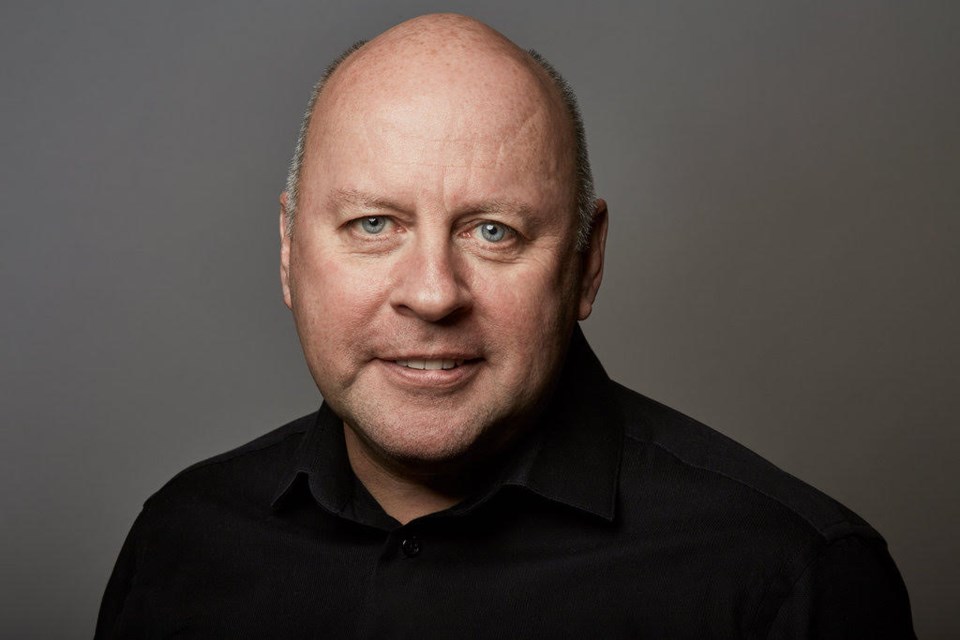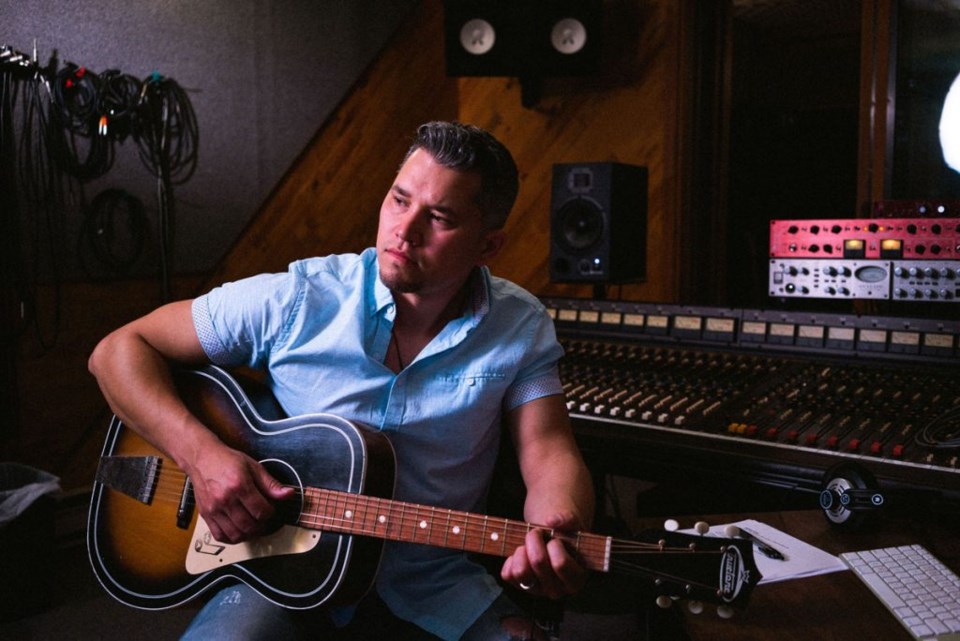
Long-time Niagara-on-the-Lake resident Mike Denney spent much of his life unaware of the culture and struggle tied to his own Indigenous roots.
His mother Gloria was Lower Mohawk of the Six Nations. As a family, he says, there was little talk in their Garrison Village home about Indigenous issues and customs.
She did tell him, his brother Joel and sister Ginger that when she was growing up in the Cayuga/Hagersville area, she had been instructed that if
anyone ever stopped her on the street to inquire about her nationality, she was to say ‘anything but Indigenous.’
“I always thought that was a really weird comment to make,” he tells The Local, from his new home in Grimsby. “And I didn’t know how to dig further to ask the right questions, to find out more.”
On the day last May when ground-penetrating radar revealed the bodies of 215 children on the site of the former Kamloops Indian Residential School in British Columbia, he realized one of the reasons behind that instruction.
“My mother never attended any of the residential schools,” he tells The Local. “But it opened up the conversations to questions that I have had for her. I never have really spoken about my own Indigenous background. It was always there, but it was never a talking point. But with everything that is going on in this country I began to educate myself about my upbringing and who I am as an Indigenous person.”
“And it had a profound effect on me as an Indigenous business leader,” continues Denney. “As someone in a certain position in the music industry I wanted to create something that could help give some Indigenous artists a chance.”
That chance will come via the new Henry Armstrong Award, announced online last Wednesday at a virtual press conference from his home. The successful Indigenous applicant will receive $10,000 and a year’s worth of mentorship by Denney and other principals involved with his record label, MDM Recordings.
Denney named the award in honour of both his grandfather, Lloyd Henry, and his mother, whose surname was Armstrong.
Denney’s career in the music industry began back in the 1980s when he was hired as a disc jockey working for Lorne Bjorgan, a local who owned Design Electronics, a company that specialized in audio-visual system sales and installation, and also ran a DJ service at that time. Denney’s role was to DJ weddings and dances, which led to him buying his own DJ service, Mr. Music, which he ran for a number of years out of his parents’ NOTL home.
While operating Mr. Music, he took a job as a rack-jobber, dropping off CDs at department stores for the Handelman Company. That inspired him to enrol in the Trebas Institute of Music, and then the Harris Institute, to learn the business side of the music industry.
He learned enough to begin bouncing around the Toronto entertainment scene, first with Polygram Filmed Entertainment, and then Sony Music for almost five years. After losing his job due to cutbacks there, he caught on with the newly formed Universal Music Group, then left to join the independent label Justin Time.
In 2008, he incorporated MDM Recordings, and began signing established artists such as Melanie Doane and Julian Austin. A year later he discovered former NHL player turned country singer Chad Brownlee, and MDM took off as a successful independent record label itself.
Today he guides the careers of young artists such as Tyler Joe Miller, David James, the duo Five Roses, and the Black Mountain Whiskey Rebellion collective. Last month he and others from MDM spent two weeks squiring the label’s successful singer-songwriter Jess Moskaluke across the U.K., where she was featured in the C2C Festival in both London and Glasgow.
MDM is also the home of three-time Juno Award nominee singer-songwriter Don Amero. The popular and successful Amero is of Cree and Métis heritage.
Beyond his music, Amero has become known for his advocacy work within Indigenous communities, acting as a youth mentor for the Winnipeg Jets and True North Youth Foundation’s Project 11, a cross-curricular prevention program aimed at improving Manitoba’s English Language Arts and Physical and Health Education outcomes. He also serves as the first ever advisor and chair of the Canadian Country Music Association’s (CCMA) Equity, Diversity and Inclusion Committee.
When the idea for the award came to Denney’s mind, he ran it by Amero and others in the MDM family, and they loved it unanimously.

“I am really excited by it,” Amero says. “Especially in country music, there hasn’t been a lot of space and elevation for Indigenous people. Mike sees the need and in some ways he’s answering the call of the TRC (Truth and Reconciliation Commission). It’s a big deal that I’m part of a label that sees the value in that.”
Denney insists he hasn’t created the award in an attempt to find his next important country music signing. In fact, he anticipates that most of the applicants will not be country music performers.
“It’s open to all genres by Indigenous musicians,” he says. “We’re going to probably see more from the hip hop, folk and roots areas. I’m not looking to sign a new act to MDM, I’m looking to help the winner along in their career.”
The $10,000 is to be split into two payments, the first $5,000 coming at the start of the mentorship program. For a year, the winner will meet with MDM experts once a month to learn about radio promotion and tracking, social media use, media publicity and other important aspects of a successful career in music. The second $5,000 payment will come at the end of that year.
“The cash award is my own personal money,” Denney explains, “and the mentorship part with the various people under the MDM umbrella is a really important piece. It’s exciting to see just where this award can go. The response has already far exceeded what we thought we would get right out of the gate.”
The portal at henryarmstrongaward.ca opens for submissions on April 19 and will remain open until May 13. A jury composed of music industry professionals will then vet the submissions. The goal is to announce the winner on National Indigenous Peoples Day on June 21.
Denney is thinking bigger in the long run, too. His goal within five to seven years is to increase the amount of the award to $100,000, with the support of some of the bigger players in the music industry. To that end, he plans to apply for charitable status for the Henry Armstrong Award.
Amero, who says he still faces racism regularly as he tours around the country, sees the announcement of the award as a big step toward forcing change in the industry.
“It’s hopeful that people like Mike are making an effort to be sure that there are these spaces,” he says, “and that the voices in those spaces are valued and allowed to be part of the change.”
“I understand that I can’t change what happened in the past,” says Denney, “but maybe I can be part of something positive going forward.”